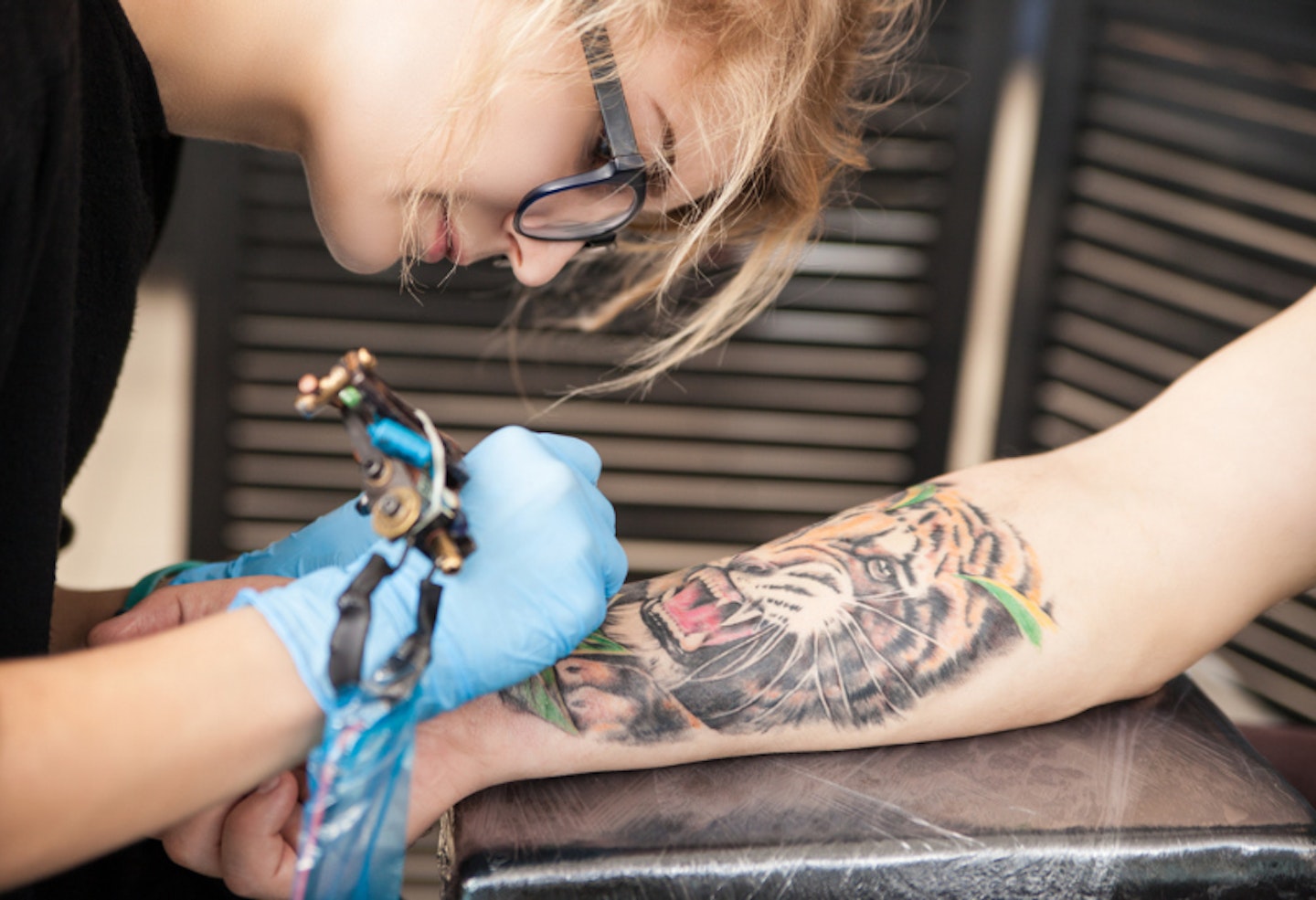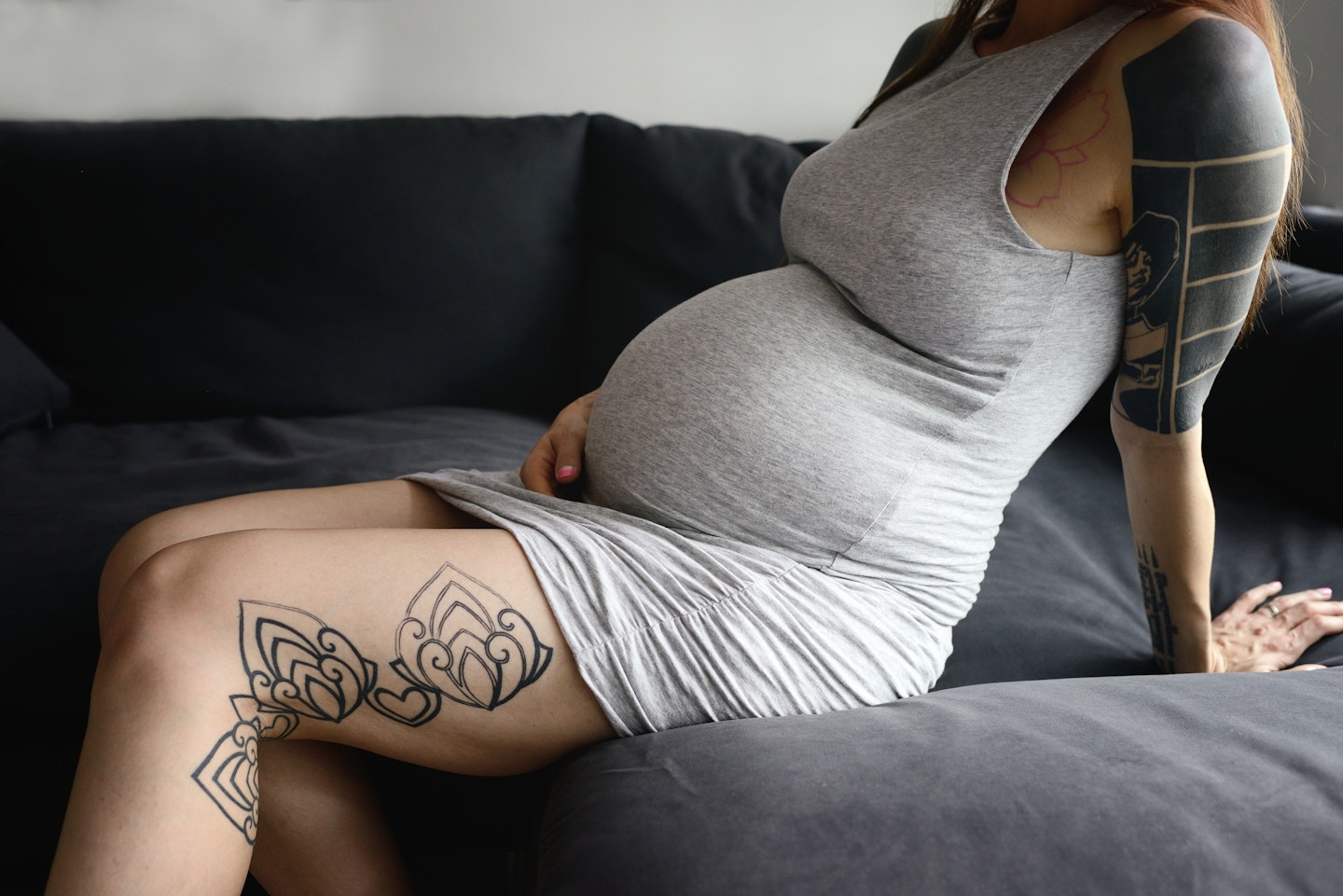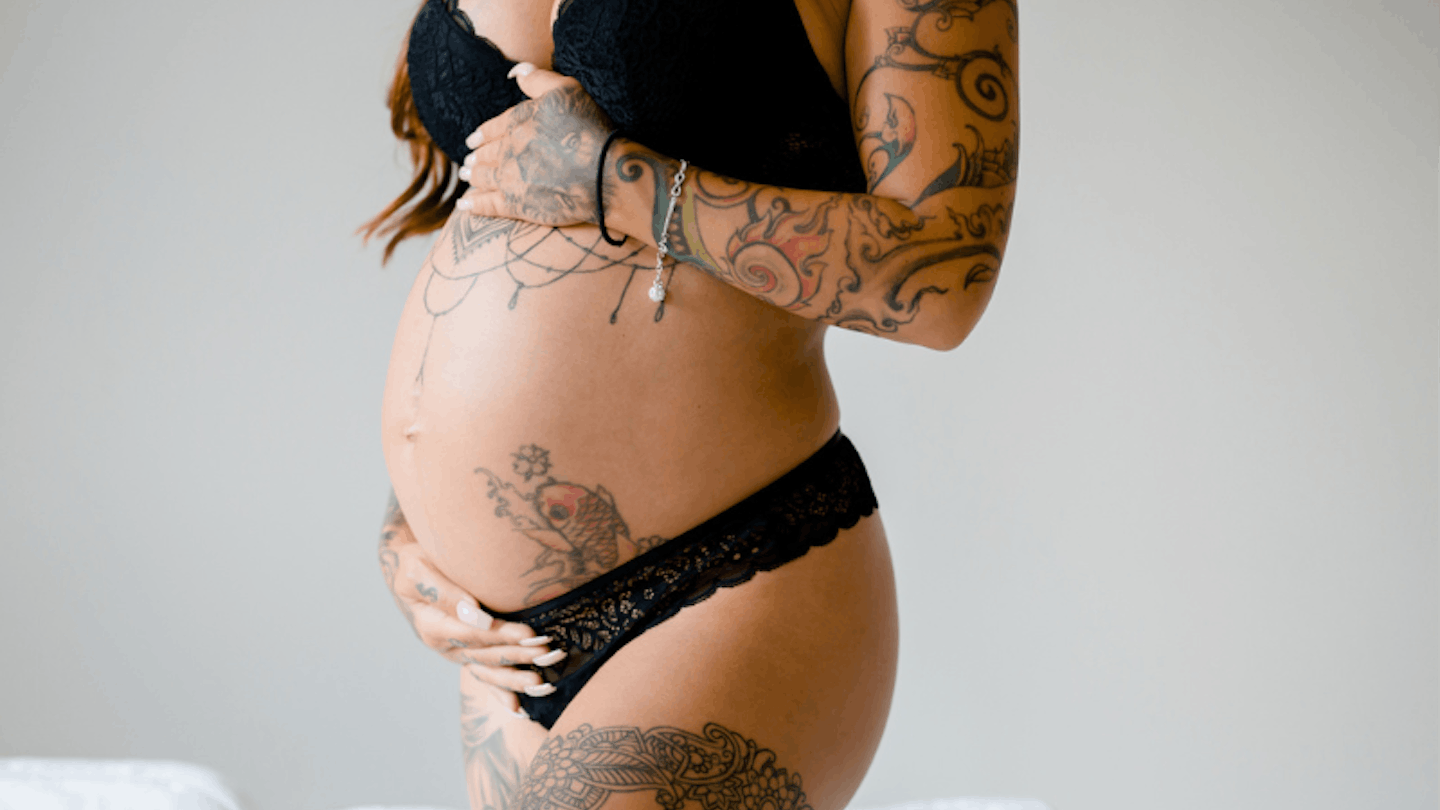There are lots of reasons for deciding to get a tattoo, including to celebrate a special event in your life, in commemoration, a tattoo following a miscarriage, or during pregnancy it could be a way to reclaim your body. But should you get a tattoo when pregnant, or wait until after your little one arrives?
In reality, there is no urgency to get a tattoo and so to be safe, waiting is probably the best idea. However, if you can't wait for nine months, or if you have a pre-existing appointment for a tattoo and just found out you are pregnant and now can't decide whether to cancel, is there any risk in going ahead and getting a tattoo when pregnant?
When it comes to tattooing and pregnancy, it is a bit of a grey area. Doctors generally advise against it, but there is no definitive research to confirm any negative effects of a tattoo when pregnant. However just like giving up smoking, or alcohol, when pregnant, waiting to get a tattoo ensures you are not taking any unnecessary risks.

The potential risks of getting a tattoo whilst pregnant
Infection
When getting a tattoo there is always a risk of infection from un-sterile needles, or from your skin not healing as it should. Navin Khosla, a Pharmacist from NowPatient, says, "Contaminated tattoo needles could put the mother and baby at risk of hepatitis and HIV, which can have serious complications later in life." There is also a risk of infection if the tattoo does not heal correctly, or becomes infected, so it is important to follow a strict aftercare routine. Infection is more of a risk when pregnant because your body's ability to fight infection is compromised with your immune system needing a boost, not added pressure.
Dyes and inks
During a tattoo the ink enters into the dermis layer of your skin and that includes connective tissue, blood vessels and nerve endings but it also means it enters the bloodstream. Unfortunately there is not enough research or evidence to show if the dyes used in tattoos are safe for a developing baby.
Skin changes and sensitivity
Your skin is more sensitive when pregnant, which means if you decide to get a tattoo while expecting, it is likely to be more painful. With so many hormone changes, your skin will be more easily irritated and can struggle to heal as well, risking infection, but also it is more likely to react with an allergic reaction.
Skin stretching
It depends where you decide to have your new tattoo, but do remember that during pregnancy your skin might be stretched, or develop stretch marks, especially over your baby bump, and there is a chance you will gain weight too, so a tattoo might look different after pregnancy once your skin isn't stretched, or if you lose the baby weight.
Precautions to take if getting a tattoo while pregnant
If you decide that you can't wait for little one to arrive, you must ensure you take some precautions when deciding to get a tattoo when pregnant. With infection the biggest risk, to minimise this ensure you research the tattoo parlour you use, and use a reputable tattoo parlour. Also, once the tattoo is done, the aftercare is vital.
Check with your tattoo artist how best to care for your tattoo and follow a strict routine and keep an eye on it for any signs of infection. Finally be prepared that your tattoo artist could refuse to tattoo you if you are pregnant, or they may ask you to sign a waiver.
Back tattoos and epidurals
If you already have a tattoo and it's on your lower back you might be wondering if it will cause any problems should you require an epidural during labour. Most likely not, however, you can talk to your midwife or doctor about it if you are concerned. One of the worries is that the pigment from the tattoo could get picked up by the needle and be introduced further into the body, however, an anaesthetist should be able to work around the tattoo design.

FAQs
Can you get a tattoo removed while pregnant?
Again there is no real research into this but the general consensus is no. The NHS says that tattoo removal can pose a small risk to the baby. Tattoos are removed by lasers which break down the pigment into smaller particles which can then be absorbed by the body and filtered out by the immune system. Obviously, when pregnant, your immune system is already compromised so you don't want to add any further stress. Ultimately, if you have put up with the tattoo for a while already, it is best to wait just a little bit longer until after baby arrives.
How soon after giving birth can you get a tattoo?
There is no set amount of time to wait to get a tattoo after giving birth but bearing in mind your body has done the amazing, but hard job, of growing and giving birth to a baby, it is best to give it a break. Navin Khosla, advises, "In my opinion, I would advise pregnant women to wait until they have given birth and their bodies have recovered before getting a tattoo. This will help to minimise the dangers to mother and baby, as well as affect the quality of the tattoo."
Should you get a tattoo while breastfeeding?
As with getting a tattoo while pregnant, there is not enough evidence to say for sure, but the advice is that it is best to wait simply because of the risk of infection. If your tattoo was to get infected then there are some antibiotics you cannot take while breastfeeding. Some tattooists will refuse to tattoo a breastfeeding mother for this reason, or again you might be asked to sign a waiver.
Navin Khosla is NowPatient’s clinical safety officer (CSO), CQC registered care manager, medical content reviewer, and registered pharmacist. He qualified with a degree in Pharmacy (Faculty of Medicine) at the University of London, School of Pharmacy, and obtained a professional qualification as a Pharmacist in July 1995. Since qualifying, he has built a wealth of experience by working across the health tech and community pharmacy retail sectors.
Laura Healy is a Commercial Content Writer for Mother&Baby. She is a mum-of-two girls and loves writing about all things parenting, she is particularly interested in the toddler years and eco-friendly baby products, as well as children’s literature. She has a PhD in Creative Writing and has published short stories in the UK and Ireland, as well as previously writing freelance for her local paper.
